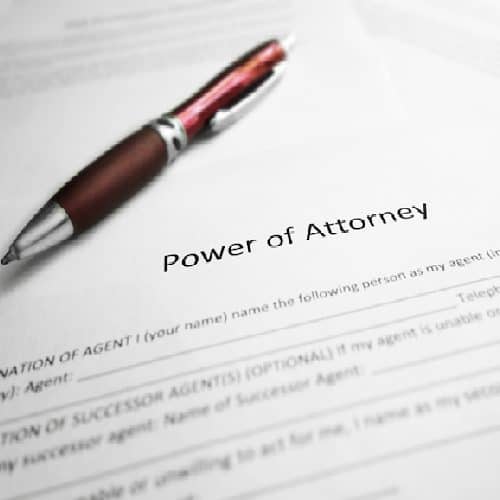A Lasting Power of Attorney (LPA) is a legal document which allows you to appoint up to four people of your choice to make decisions on your behalf, should you ever become unable to do so yourself or would simply like to have help managing your financial affairs.
There are two types of LPA to choose from, one deals with your financial affairs and the other deals with your health and welfare interests.
- “Property and Financial Affairs” LPA: this allows your selected loved ones to deal with the payment of your bills and if necessary, the buying and selling of your property and managing your bank accounts and any investments that you have.
- “Health and Welfare” LPA: this covers decisions about the fundamentals of health and care, this includes decisions relating to where you are to live and how you are cared for. This can only be used if someone is incapable of dealing with such matters themselves.
Why should I have an LPA?
- An LPA ensures that, should you be unable to manage your own affairs, the people you have appointed can manage your finances on your behalf. This can save a great deal of money and distress, and will ensure that, as a vulnerable person, your affairs will be handled correctly and quickly.
- According to the Alzheimer’s Society, more than 1 million people in the UK will have dementia by 2025. More than 1 in 5 people over 85 already suffer from this, with rates significantly higher amongst women than men.
- Conditions such as strokes, brain injuries and Parkinson’s disease can also affect someone’s ability to make their own decisions. Alongside this, accidents that occur without any warning can suddenly seriously affect someone’s mental capacity. In any of these situations handling your own financial affairs can become impossible, which is why charities that care for the elderly recommend that everyone plans ahead.
- Your family must apply to the Court of Protection if someone loses mental capacity without an LPA in place, the Court of Protection will need to agree to appoint a deputy to deal with everyday financial matters. This is a slow and very expensive process and if you have to use a lawyer at this stage it could cost a lot more. However, if you already have an LPA in place, this will not be necessary.
- Dealing with finances can be difficult as joint bank accounts, building society and business accounts can be severely restricted if one of the account holders loses mental capacity and there is no registered LPA in place.
- In this instance the restricting of a joint account has significant implications, as the joint owner cannot freely withdraw what is essentially their own money without an order from the Court of Protection. This could be devastating, especially if the joint owner has their only form of income, such as their pension, paid into this joint account.
- If your joint bank account is frozen, how will your partner pay essential bills such as your mortgage, utilities, car payments or insurance?”
- COVID-19 has shown us the importance of having a health and welfare LPA in place, as your attorneys can be given the authority to give or refuse life sustaining treatment on your behalf and your property and finances attorney, can act for you if you need to isolate as an example.
Find out more
At Wollens we recognise the importance of having an LPA in place. To help people with the process we are offering up to 50% discount from our standard pricing for the creation of your Lasting Power of Attorney document (for a limited period of time). To find out more, please contact us on 01803 213251 or email us at [email protected].
Additionally Wollens are offering discounts of up to 50% on the standard pricing of wills (for a limited period) please contact us on 01803 213251 or email us at [email protected].



